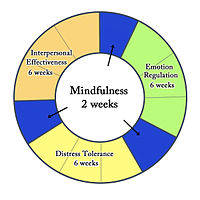
Photo from wikipedia
INTRODUCTION Loss-of-control eating (LOCE), inability to refrain from or cease eating, may contribute to significant distress and dysfunction, yet research is lacking specificity on vulnerabilities contributing to LOCE as an… Click to show full abstract
INTRODUCTION Loss-of-control eating (LOCE), inability to refrain from or cease eating, may contribute to significant distress and dysfunction, yet research is lacking specificity on vulnerabilities contributing to LOCE as an independent construct. Preliminary evidence indicates potential roles of distress tolerance, emotion regulation, and affective lability, but the relationship between these variables and LOCE has been under-assessed. MATERIAL AND METHODS A sample (N = 3968) consisting of university students completed an assessment of pathological eating and affiliated affective vulnerabilities. A latent variable structural equation model (SEM) was generated to predict LOCE by way of affective lability and indirectly, emotion regulation difficulties and low distress tolerance, controlling for general eating pathology. RESULTS Findings indicated a significant direct effect of affective lability on LOCE, as well as significant indirect effects of emotion regulation difficulties and distress tolerance on LOCE, via affect lability. Additionally, distress tolerance moderated the relationship between emotion regulation difficulties and affective lability, such that lower ability to tolerate distress strengthened the relationship and higher distress tolerance capability attenuated it. DISCUSSION Findings suggest an influence of distress tolerance on the relationship between poor emotion regulation and affective lability, which in turn may affect LOCE. Clinical implications and suggestions for future research are discussed.
Journal Title: Eating behaviors
Year Published: 2021
Link to full text (if available)
Share on Social Media: Sign Up to like & get
recommendations!